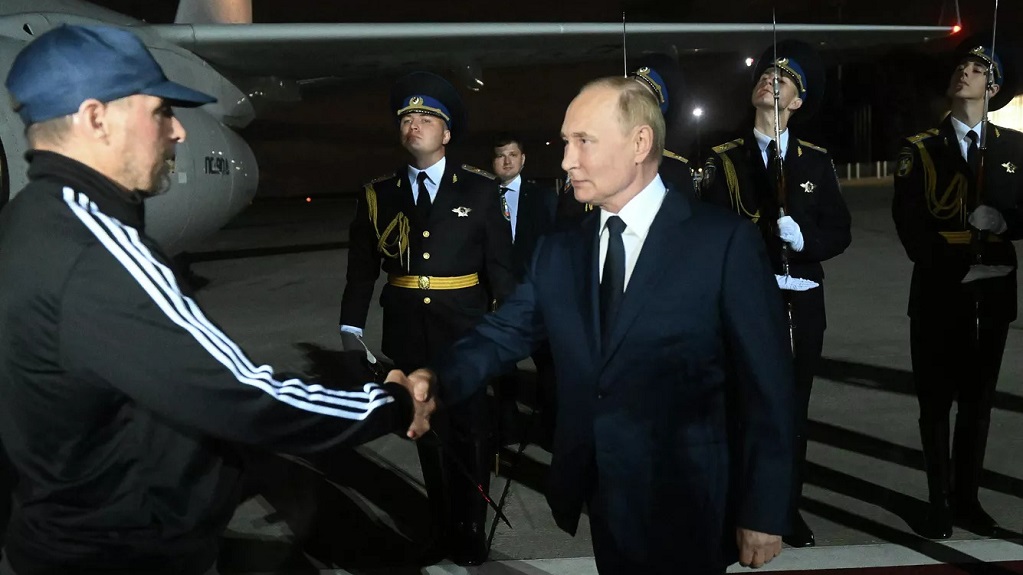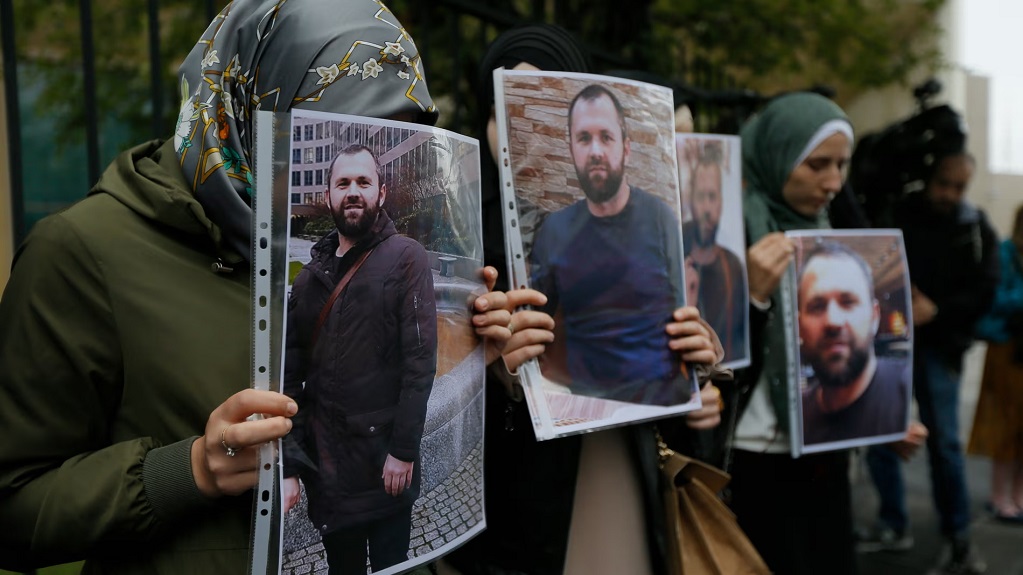Manana Tsatieva, the widow of Zelimkhan Khangoshvili, told Deutsche Welle that German authorities did not discuss with the family the potential transfer of Vadim Krasikov, who was sentenced to life imprisonment for Khangoshvili's murder, to Russia. She finds this decision incomprehensible.
News
"I could not even imagine that they would do such a thing," said Tsatieva. As she said, immediately after Krasikov's sentencing, there were rumors that Moscow was trying to negotiate his exchange.
"At the time, the lawyers reassured us, saying it was impossible: if a person is sentenced to life imprisonment, they must serve at least half of the term in this country. It turns out that any law can be ignored for political reasons," Khangoshvili's widow noted.
Manana Tsatieva stated that the German authorities should have shown "basic respect" to the relatives of the deceased.
"Why didn't they consult the family? It's as if this family doesn't exist, as if this trauma never happened. Politics is the biggest prostitution, and this is proven every time," Tsatieva said. She added that, for Zelimkhan Khangoshvili's family, "it is not sad that someone's life was saved."
Germany handed over Vadim Krasikov to Russia on August 1, as part of a large-scale exchange of prisoners between Russia and Western countries. The publication Frankfurter Allgemeine Zeitung writes that the German prosecutor's office is "disappointed" by the government's decision.
German media reported that Foreign Minister Annalena Baerbock opposed Krasikov's exchange, believing it was wrong to negotiate with Russia, which "makes hostage-taking an instrument of foreign policy," and argued that releasing Krasikov, whose actions have been described as "state terrorism," would send the wrong signal.
German Chancellor Olaf Scholz said the decision to deport Krasikov to Russia was not taken lightly. He emphasized that such an agreement with the Kremlin was necessary for the release of Russian political prisoners, as well as German and US citizens held in Russian prisons.

Ethnic Chechen Zelimkhan Khangoshvili, who hailed from the Pankisi Valley, fought against Russia in the Second Chechen War. He left Georgia for Germany in 2015 after surviving another attack and sought asylum there. On August 23, 2019, while heading to the mosque for Friday prayers in the Moabit district of Berlin, he was shot in the head by a passerby on a bicycle. The 40-year-old Khangoshvili died on the spot. The murderer, Vadim Krasikov, who used the alias Vadim Sokolov according to a fake Russian passport, was arrested the same day. In December 2021, the Berlin High Court granted the federal prosecutor's request and sentenced Krasikov to life imprisonment. The judge described the murder of the Georgian citizen as "state terrorism."















